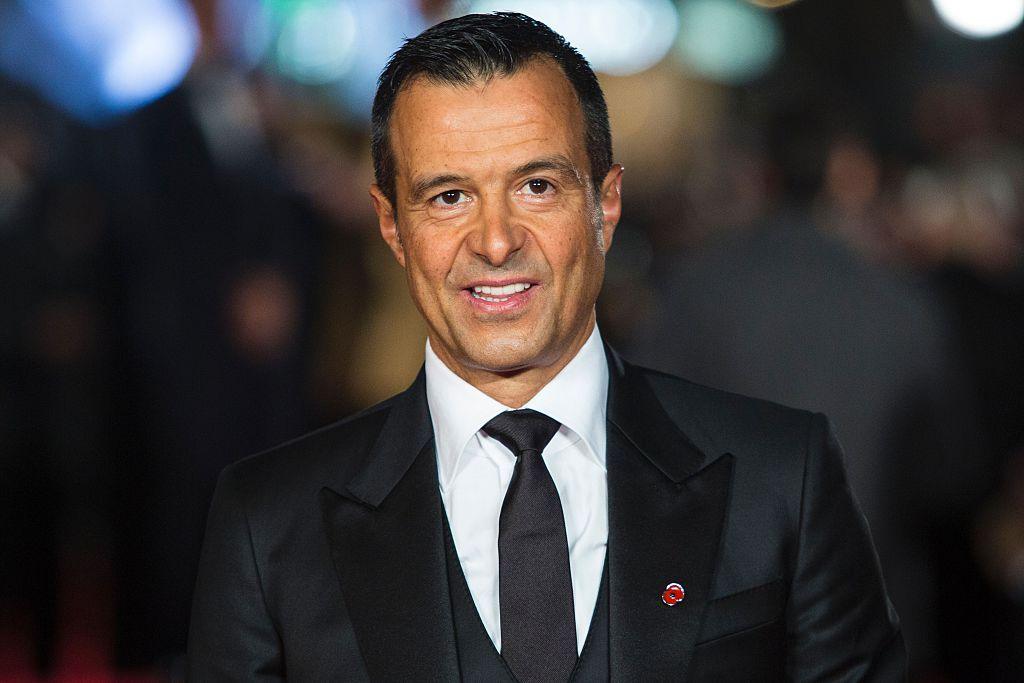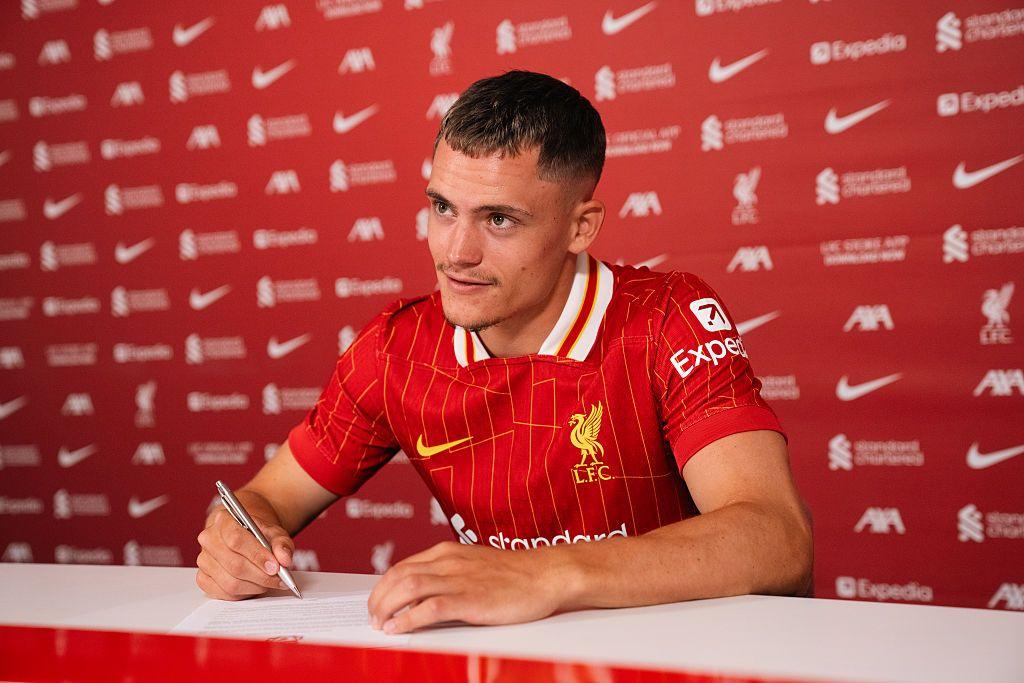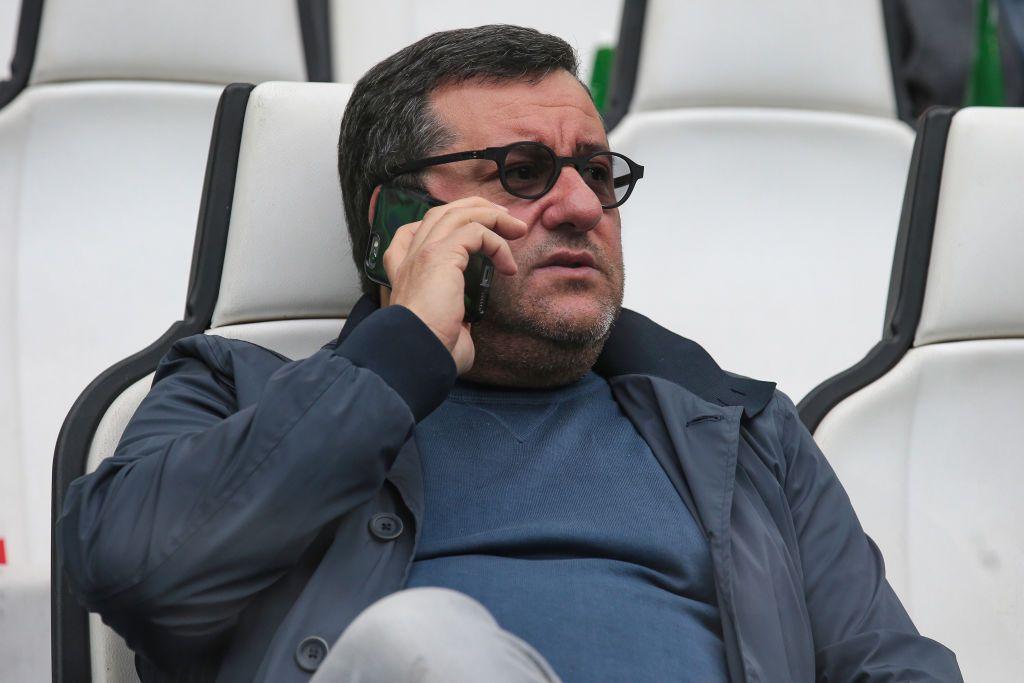How do football agent fees work?
- Published
The transfer window is peak season for football agents.
That is when agents broker deals for their clients as they pop up, revive moves that may have fallen through, and ring round clubs to see if they can secure a dream move for a player.
The biggest agencies - such as Base, Stellar, and Wasserman - have hundreds of players on their books.
Individual 'super agents' - including Jorge Mendes, widely known for guiding Cristiano Ronaldo's career - often find themselves in the spotlight nearly as much as their clients. Like it or not, agents are an integral part of the business of football.
They receive payment for helping to organise transfers, and from commissions earned when players sign new contracts. It can, therefore, be in the financial interests of an agent for their client to move or agitate for a new deal.
But agents also have to be advisers - looking after the best interests of their players, be a sounding board for them and their families, and look after their mental wellbeing.
It is a deeper job than just trying to sell the player to the highest bidder.
Player representatives can also help and advise clubs, in exchange for payment, even to the point of ensuring two parties in transfer negotiations are responding to each other.
Get in touch
Send us your questions
How much do clubs spend on agent fees?
At the top of the game, there is serious money to be made by agents.
From 2 February 2024 to 3 February 2025, Chelsea spent a little over £60m on agents fees, while Manchester City spent about £52m.
The 20 Premier League teams paid a combined £409.1m on fees - down from £409.5m in the previous period.
The lowest spenders were Ipswich, who paid out £6.2m across a period during which they were promoted to the Premier League.
Lower down the pyramid, League Two clubs paid agents a total of £2.7m - the top spenders being Fleetwood, with £284,000.

Jorge Mendes' clients include many prominent Portuguese footballers such as Cristiano Ronaldo, Ederson, Ruben Dias, Joao Felix, Rafael Leao, and Bernardo Silva
How much are football agents paid?
This is harder to ascertain.
Juventus did say in 2016 that Paul Pogba's former agent Mino Raiola, who died in 2022, had made £24m from the midfielder's £94m transfer to Manchester United.
The responsibility to pay an agent is their client's, but it is commonly negotiated during a transfer that the buying club pays the agent's commission on the player's behalf, especially at the top level.
Some agents at bigger agencies will be salaried, earning commission alongside their regular wage, while others earn their income entirely from commission.
Fifa's regulations state fees to agents are paid on an invoice basis - every three months for any player contract lasting longer than six months.
But, in reality, money could come every six months or even once a year. The bigger the club the more likely it would be to come in one payment, and often clubs will pay agents their service fees in September and February - after the transfer window.
With each transfer, a three-way agreement is typically signed between the club, the player, and the agent - intended to foster a positive working relationship.
It usually includes a list of duties outlining how the player's relationship with club can be maintained, what the agent has done for the club so far, and a list of what each party should carry on doing.
Such agreements are designed to prevent issues like players skipping training - by discouraging agents from giving advice that could harm club relations, which would breach contract terms.
Players can still go against a club's wishes, of course. Riyad Mahrez missed training at Leicester in 2018 when he failed to get a move to Manchester City, which eventually went through.
In such circumstances, clubs can threaten to withhold payments to an agent.
But a transfer could mean greater financial reward for an agent than any money lost from withheld payments, so the three-way agreement can be viewed more as an understanding than a rock-solid binding deal.
The agreements last for the duration of the player's contract, and details the payments due to the agent, both from the player and the club.
What happens if a transfer agreement is broken?

The contracts players sign when they join a new club include stipulations about the relationship between them, their agent, and their new club
How does somebody become a football agent?
To represent players, agents need to pass Fifa's agent exam, which was reintroduced in 2023 having been withdrawn in 2015.
When the industry was essentially deregulated in the past, agents merely had to pay a fee for their licence and could then represent clients.
The revamped exam tests agents' knowledge of Fifa's transfer regulations and the football industry, although some agents complain it does not reflect their day-to-day jobs and what it takes to look after a player.
The exam is a 20-question multiple-choice paper which candidates have an hour to complete.
Last year the global pass rate for the two exams - held in May and November - was 40%.
How to become a football agent
- Published17 December 2024
Why are football agents taking action against Fifa?
In 2023, Fifa introduced a service fee cap for agents, but legal challenges from multiple countries led to it being suspended, with the argument being it violated competition law and was anti-competitive.
Fifa proposed capping agent earnings at 10% of a transfer fee if representing the selling club, and 5% if working for the buying club. So, for example, if an agent was representing the selling club in a £50m deal, they would earn a maximum of £5m.
Fifa's new rules were challenged by two football agents' associations - Pro Agent and the European Football Agents' Association.
Two years ago, the Dortmund Regional Court stopped Fifa and the German Football Association from applying certain aspects of the new rules, including the limitation of agents' fees.
Fifa opted to suspend the regulation to ensure a level playing field, and the service fee cap does not currently apply to English transactions and to international transfers.
The issue remains unresolved, but agents are nervous about the cap because they would potentially lose a lot of money if their fees are limited.
This article is the latest from BBC Sport's Ask Me Anything team.

The late Mino Raiola was one of the most powerful agents in world football
What is Ask Me Anything?
Ask Me Anything is a service dedicated to answering your questions.
We want to reward your time by telling you things you do not know and reminding you of things you do.
The team explores everything you need to know and calls upon a network of contacts including our experts and pundits.
We answer your questions from the heart of the BBC Sport newsroom, and go behind the scenes at some of the world's biggest sporting events.
Our coverage spans the BBC Sport website, app, social media and YouTube accounts, plus BBC TV and radio.